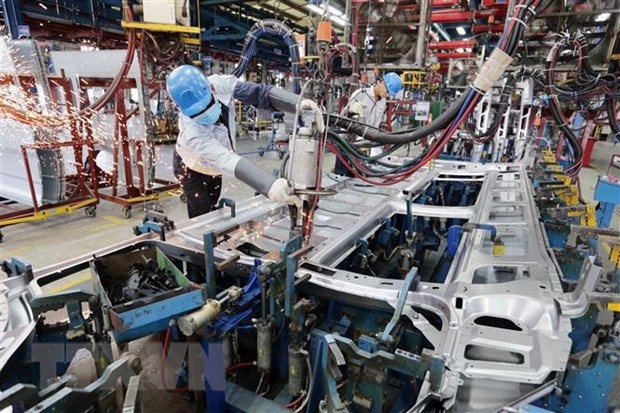
During a recent forum, Francois Painchaud, resident representative of the IMF in Vietnam and Laos, said the Vietnamese economy will rebound strongly with an expected growth rate of 6% this year before rising to 7.2% in 2023.
The near future poses some possible risks such as rising inflation and uneven growth across multiple sectors, issues which are anticipated to impact the country’s economic growth.
Furthermore, the tightening of global financial conditions and fluctuations within the domestic real estate market and corporate bonds are also predicted to impact the growth rate.
Economist Can Van Luc stated there are two scenarios for Vietnamese GDP growth in the 2022 to 2023 period. Accordingly, the base scenario sees GDP likely to grow at between 5.5% and 6%, while the negative scenario would see GDP pick up by between 4.5% and 5%.
These figures are largely dependent on pandemic containment efforts, the programme on socio-economic recovery and development, as well as the nation’s capabilities to mitigate the negative impact of the Russia-Ukraine conflict.
Dr. Nguyen Bich Lam, former Director of the General Statistics Office, pointed out a number of factors that are likely to exert additional pressure on the national economy this year and continue to have an influence next year.
This includes supply chain inflation, the rising costs of raw material prices, and a sudden spike in aggregate demand amid supply chain disruptions.
Nguyen Quang Thuan, chairman of FiinGroup, a leading integrated service provider of financial data, said there are bright prospects ahead for economic recovery as several sectors seek to positively rebound moving into the post-pandemic period.
Moreover, experts have proposed support for fields such as aviation and international tourism construction, along with materials aimed at achieving higher economic growth in the coming time.











